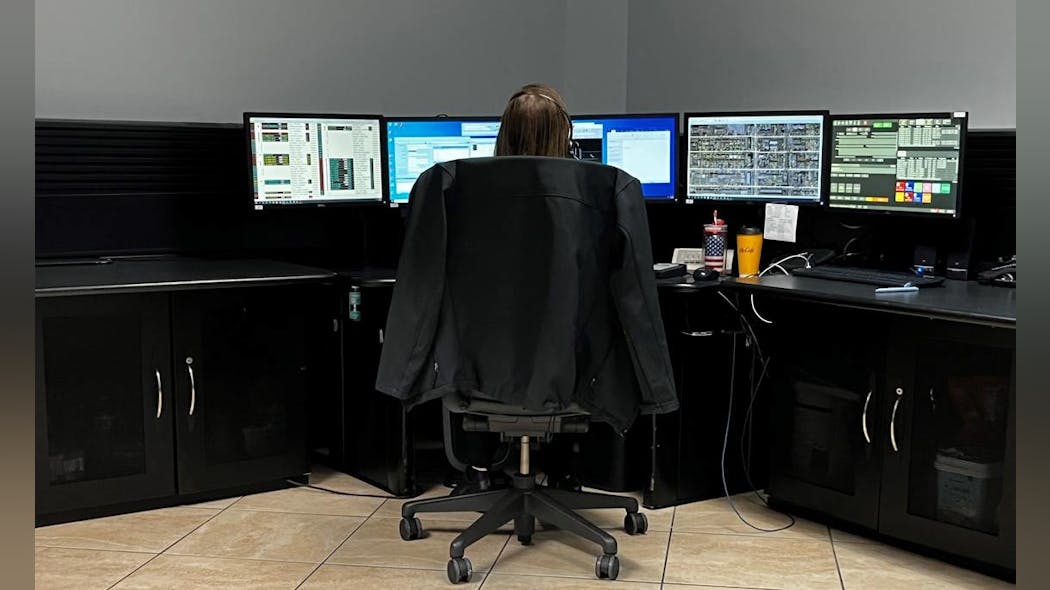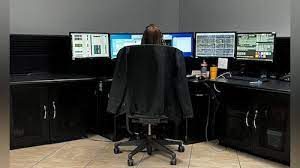April 25, 2023 “..The turnover rate is high, pay is low…members of this unit are exhausted from forced overtime and lack of days off,” a consultant said of the Hialeah center.
By Verónica Egui Brito Source Miami Herald (TNS) Distributed by Tribune Content Agency, LLC.

Hialeah is facing a crisis at its 911 emergency call center.
Five years ago, 26 employees left, including 16 teleoperators, and the center hasn’t recovered.
The vacancies represent 15% of the labor force required by the department, which until now hasn’t been able to fill the jobs, Jorge Llanes, police commander and director of the call center, told el Nuevo Herald.
Now employees are publicly asking for help.
Andrew Glassmer, a police radio dispatcher for the Hialeah 911 communications department, told the City Council on March 28: “We have severe staffing shortages, and unfortunately a lot of the issues with our staffing are retention issues. We lose them to other agencies that offer a more tempting offer like the retirement pension.
Hialeah eliminated pensions for public employees in 2014, under the administration of Carlos Hernández, due to a budget deficit of $28 million, Local 10 reported at the time. Now, only police officers, firefighters and those employees who were already contributing before that decision was made have the benefit.
The employees hired after cut have access to a 401(k) plan. The city spends about $35 million a year to pay existing pensions.
In six months, more employees left
When Hialeah released its 2023 budget in September 2022, it projected that it would have 55 employees in the 911 communications division.
Six months into the budget, the number of personnel dropped to 43.
And the exodus has continued.
In the breakdown of the list of employees, provided by the city’s human resources department, 13 people working in the 911 center left in the past six months. Among them:
▪ A police lieutenant
▪ An electronic technician
▪ Two complaint officers responsible for rapid screening of phone calls
▪ Two public safety tele-communicators
▪ Four police radio dispatchers
Only one new employee was added to the 911 functions, a complaint officer.
For Glassmer, the police radio dispatcher who has been with that department for six years, “it’s been a downhill trend since the first day I got here. Unfortunately, we need his help, we are very, very desperate,” he said.
Glassmer warned that “the future for our division are poor if drastic and rapid changes are not made.”
Of the employees who remain in the emergency service, only 18 are call operators, according to public records obtained by el Nuevo Herald.
The department has another 10 public safety tele-communicators, but only part-time, many of them qualified primarily to handle administrative but not emergency, calls. According to Llanes, the city has only three people who can handle all types of emergency calls: police, medical and fire.
Most of the tele-operators have training in one of the three areas but not in all, which requires an additional person to handle each situation.
On an average day, it’s stipulated that there be five tele-operators, a radio dispatcher, three emergency operators and a supervisor. But often there are one or two fewer people, which forces the staff on duty to work up to a 16-hour shift, Llanes said.
The department with the lowest salaries in the city
Recruitment for the center has been an issue in Hialeah.
Said Human Resources Director Elsa Jaramillo-Velez: “We have a problem with recruitment. The salaries in this department are quite low. They are the lowest in the city. We are having a very hard time recruiting dispatch operators or complaint officers.”
The starting salary in the 911 division is $30,186, about $15 an hour, for a 37.5-hour week, which due to lack of personnel frequently exceeds 40 hours a week.
However, Jaramillo-Velez said that some of the employees in the division “make even less than that,” around $27,000.
But in the case of the 10 part-time people, their salary is different. They earn between $30 and $40 an hour, more than double ($15) than those full time, stipulated for an eight-hour shift. But due to low staff, they have 12-hour daily shifts, Llanes said.
Hialeah has just approved a new contract with the union, the American Federation of State, County and Municipal Employees, which brings together 911 employees, for which they received a 3% salary increase.
The city is offering as an incentive, to attract new workers, a bonus of $1,500 as soon as they join. The bonus is given out under the condition that they remain in the department for at least two years. If they leave earlier, they would have to return the money.
Llanes said that when the Hialeah center is overwhelmed with calls, some are redirected to Miami-Dade County until they can be picked up again by the city.
Even if the city were able to fill all 911 vacancies immediately, their professional practice doesn’t start the day they are hired.
For a new recruits to start answering unsupervised calls, they must first do 232 hours of communication training, about four months, to obtain Florida certification.
But they are not yet prepared to deal with police, medical or fire emergencies. To answer a call of any type of emergency, they must spend at least two years in training.
Unit requires immediate attention
Sixteen months ago, when a replacement for the police chief was being sought, the consulting firm Colina Group warned in a report on the police department, which includes the 911 communications center, that “this unit is very neglected and needs immediate attention.”
In the report, the consulting firm said that “an investment now will save money in the long term. The turnover rate is high, pay is low, recruiting is a problem, and members of this unit are exhausted from forced overtime and lack of days off.”
The president of the fire union, Eric Johnson, asked: “Do you want to retain people? Do you want to know where the operators go? They go to Miami Beach, they go to the county.”
